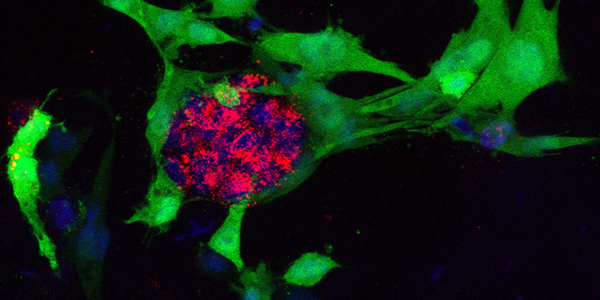
October 19, 2015, by Emma Thorne
Funding for gel that mimics human breast tissue
The University has been awarded grant funding of more than £400,000 to develop a gel that will match many of the biological structures of human breast tissue.
The development, being led by new Nottingham academic Dr Cathy Merry in the School of Medicine, aims to advance cancer research while reducing the need for animal testing.
Dr Merry said: “By developing a bespoke environment which can be programmed to behave in the same way as human breast tissue we will be able to investigate how cancers are influenced by the adjacent normal cells and the non-cellular stroma without the need to use animals.”
The £417,000 grant comes from the National Centre for the Replacement, Refinement and Reduction of Animals in Research (NC3Rs) and will be used to develop the gel, originally created for stem cell research, to incorporate many of the key features found in human breast tissue such as proteins and sugars from the matrix surrounding the breast cells.
The new gel, which will allow breast cell models to be grown in the lab and help the researchers to understand the influence of the breast matrix in breast cancer progression, could replace the rodent models that are currently used to investigate breast cell behaviour.
Dr Merry added: “Currently, non-animal tumour models poorly represent the complex environment experienced by cancer cells but the approach planned with this gel has the potential to replicate the cancer environment seen in humans.”
Importantly, as well as replicating aspects of the complex mixture of proteins that embed and support cells, the hydrogel will also be manipulated to mimic breast density, a key predictor of breast cancer recurrence and development.
Dr Merry has recently joined the Wolfson Centre for Stem Cells, Tissue Engineering & Modelling (STEM) in the Centre for Biomolecular Sciences from the University of Manchester, where the hydrogel technology was originally developed. She will continue to work with her former colleagues Dr Gillian Farnie and Professor Tony Howell at Manchester to further refine the gel model, which they believe could also be used to investigate other solid cancers.
No comments yet, fill out a comment to be the first

Leave a Reply